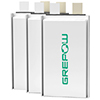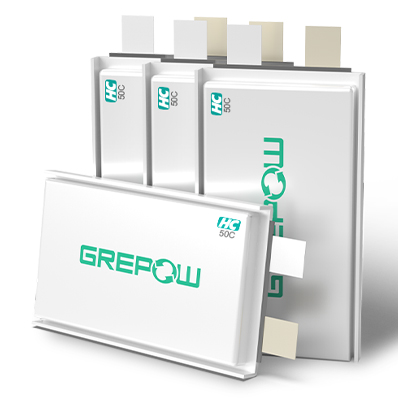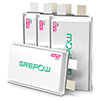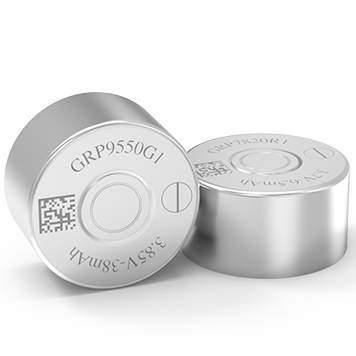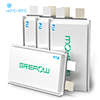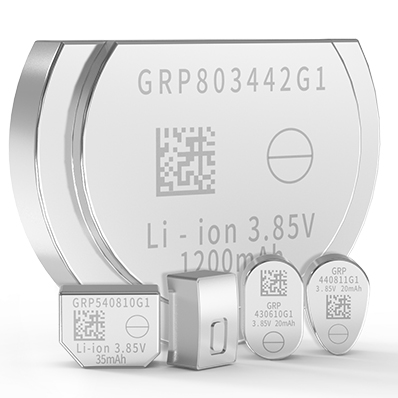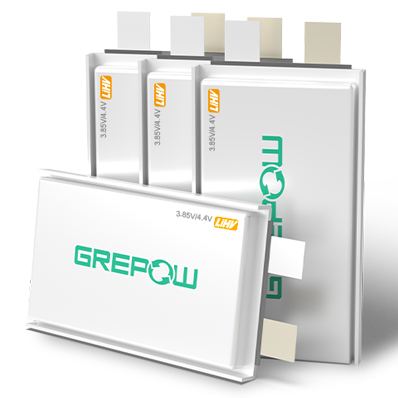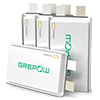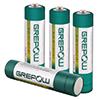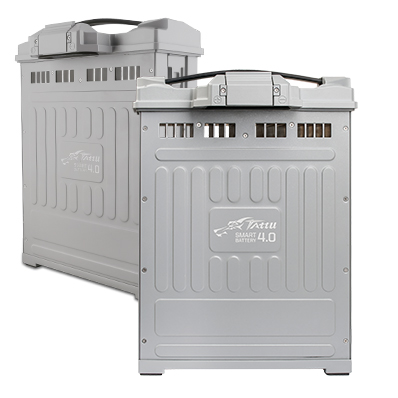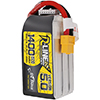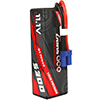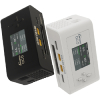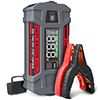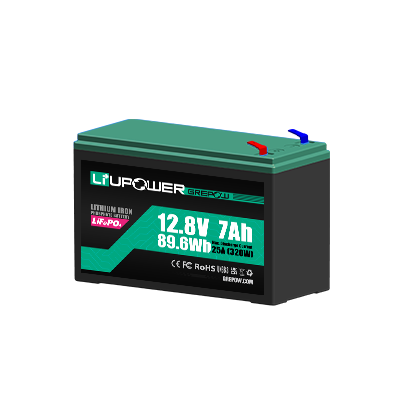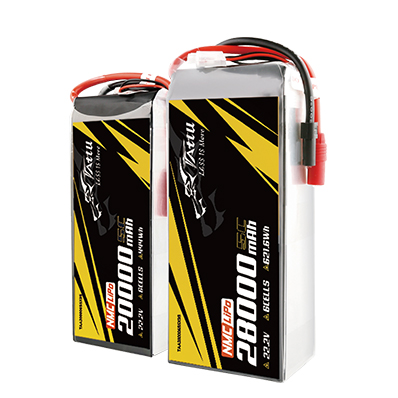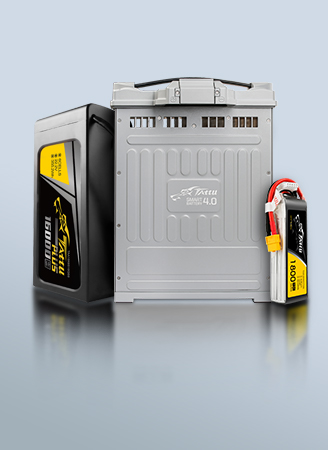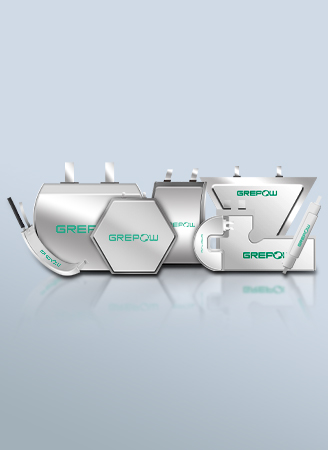Grepow Custom Lipo Battery Pack Solutions
Lithium Polymer (LiPo) batteries have revolutionized the energy storage industry, providing high energy density, flexibility, and lightweight solutions for a myriad of applications. Grepow, a leading custom lipo battery pack manufacturer, offers custom Lithium Polymer Battery Pack solutions designed to meet the specific needs of various industries. This article delves into the details of LiPo batteries, the differences between lipo battery cells and packs, the customization process, and the diverse applications of these power sources.
What is a Lithium Polymer Battery?
A Lithium Polymer battery is a type of rechargeable battery that utilizes a polymer electrolyte instead of the traditional liquid electrolyte found in Lithium-ion (Li-ion) batteries. This polymer electrolyte is a conductive plastic film that allows ions to move between the electrodes, providing the same functionality as a liquid electrolyte but with several distinct advantages. Key benefits of LiPo batteries include their lightweight nature, flexibility in shape and size, high energy density, and improved safety.
Lipo Battery Packs vs Lipo Battery Cell: What's the difference?
A Lithium Polymer battery cell is the basic building block of a LiPo battery. It consists of three main components:
●Anode: Typically made of graphite.
●Cathode: Usually composed of a lithium-metal oxide (e.g., lithium cobalt oxide).
●Electrolyte: A solid polymer that conducts lithium ions between the anode and cathode.
Each cell has a nominal voltage of around 3.7 volts and a specific capacity measured in milliampere-hours (mAh).
A Lithium Polymer battery pack is an assembly of multiple LiPo cells arranged in series and/or parallel configurations to achieve the desired voltage and capacity. Smart lipo battery packs also include additional components such as:
●Battery Management System (BMS): Ensures the safety and longevity of the lipo battery pack by managing the charge and discharge processes.
●Protection Circuit Module (PCM): Protects against overcharging, over-discharging, and short-circuiting.
●Casing: Provides structural support and protection for the cells.
The lipo battery pack delivers higher voltages and capacities than a single cell, tailored to specific application requirements.
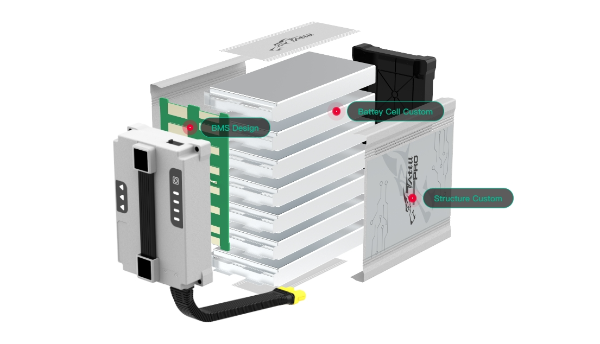
Difference Between Pouch Cell and Smart LiPo Battery Pack
A pouch cell LiPo battery is a single cell enclosed in a flexible aluminum foil pouch. It offers advantages such as lightweight, high energy density, and the ability to be manufactured in various shapes and sizes. However, it lacks advanced monitoring and management features. A smart LiPo battery pack includes multiple cells arranged in a specific configuration and integrated with a Battery Management System (BMS). The BMS provides advanced safety, monitoring, and management features, ensuring optimal performance and longevity. Smart lipo packs can communicate with devices, providing real-time data on battery status, health, and performance.
How to Make a Lithium Polymer Battery Pack?
Creating a lipo battery pack, including both pouch cell lipo battery packs and smart lipo battery packs, requires careful attention to detail, safety measures, and proper equipment. Here’s a step-by-step guide:
1. Safety Precautions
●Wear protective gear: Safety goggles, gloves, and anti-static wristbands.
●Work in a well-ventilated area: To avoid inhaling any harmful fumes.
●Have a fire extinguisher nearby: LiPo batteries can be hazardous if mishandled.
2. Gather Materials and Tools
●LiPo cells (pouch cells): The number and capacity depend on the desired voltage and capacity.
●Battery management system (BMS): For smart lipo battery packs, to manage charging, discharging, and balancing.
●Nickel strips: For connecting the cells.
●Insulation materials: Kapton tape, heat shrink tubing.
●Wires and connectors: XT60/XT90 or other suitable connectors.
●Soldering equipment: Soldering iron, solder, flux.
●Spot welder: For connecting nickel strips to the cells.
●Heat gun: For heat shrink tubing.
3. Plan the Configuration
Series and parallel connections: Determine the series (S) and parallel (P) configuration to achieve the desired voltage and capacity. For example, a 4S2P configuration means 4 cells in series (total voltage = 4 times the voltage of one cell) and 2 such strings in parallel (total capacity = 2 times the capacity of one cell).
4. Assemble the Cells
Pouch Cell Battery Lipo Pack
●Align the cells: Ensure all cells are aligned properly with tabs facing the same direction.
●Spot weld the cells: Use a spot welder to connect the cells with nickel strips according to your configuration (series and parallel connections).
●Insulate connections: Use Kapton tape to insulate any exposed connections.
Smart LiPo Battery Lipo Pack
●Install the BMS: Connect the BMS to the cells. The BMS will typically have balance leads and main leads. Follow the manufacturer's instructions for proper connection.
●Secure the BMS: Use tape or adhesive to secure the BMS to the pack.
●Spot weld and insulate: Follow the same steps as the pouch cell lipo pack for connecting and insulating the cells.
5. Add Protection and Finishing Touches
●Wrap the pack: Use Kapton tape or heat shrink tubing to wrap the entire battery pack for protection.
●Attach connectors: Solder the main power wires and balance leads to the appropriate connectors.
●Check connections: Verify all connections are secure and properly insulated.
The Process and Technology of Lithium Polymer Battery Pack
1.Cell Selection
The process begins with selecting high-quality LiPo cells that meet the specific energy, power, and size requirements of the application. Grepow sources cells with high energy density, consistent performance, and longevity.
2.Configuration Design
The next step is designing the pack configuration. Engineers decide on the number of cells in series (to increase voltage) and in parallel (to increase capacity) based on the application's needs. This involves detailed calculations and simulations to ensure optimal performance.
3.Assembly and Welding
Cells are arranged in the designed configuration and connected using high-precision welding techniques. Grepow employs advanced ultrasonic welding technology, which provides strong, reliable connections with minimal heat damage to the cells.
4.Integration of Battery Management System
A critical component of the process is integrating the Battery Management System (BMS). The BMS monitors and controls the charging and discharging processes, ensuring balanced cell voltages, protecting against overcharging and over-discharging, and managing temperature to prevent overheating.
5.Encapsulation and Safety Measures
The assembled battery pack is encapsulated in protective materials, such as heat shrink tubing or custom casings, to safeguard against physical damage and environmental factors. Additional safety features, such as thermal cutoffs and pressure vents, are incorporated to enhance the safety profile.
6.Testing and Quality Control
Each battery pack undergoes rigorous testing, including charge/discharge cycles, capacity verification, thermal performance analysis, and safety checks. Grepow's quality control process ensures that every pack meets stringent standards before it is shipped to customers.
Grepow Custom lipo Battery Pack Solutions
Grepow offers extensive customization options to cater to the specific needs of various industries:
1.Capacity and Voltage
Custom packs can be designed to achieve specific voltage and capacity requirements by adjusting the number of cells in series and parallel configurations.
2.Shape and Size
LiPo batteries can be customized to fit unique form factors, making them ideal for applications with space constraints or specific design needs.
3.Discharge Rate
Different applications require different discharge rates. Grepow can tailor the internal chemistry and structure of the cells to achieve high discharge rates for power-intensive applications or lower rates for longer-duration use.
4.Temperature Range
For applications exposed to extreme temperatures, Grepow offers custom solutions with enhanced thermal stability, ensuring reliable performance in both high and low-temperature environments.
5.Smart Battery Features
Integration of smart features, such as state-of-charge indicators, communication protocols (I2C, SMBus, CAN bus), and data logging, can be customized to provide advanced monitoring and management capabilities.
6.Safety Features
Enhanced safety features, including overcharge/over-discharge protection, short-circuit protection, and thermal management systems, can be incorporated based on application requirements.
Application Fields of Lithium Polymer Battery Packs
LiPo batteries power a wide range of consumer electronics, including smartphones, tablets, laptops, and wearable devices, offering high energy density and long runtimes in compact form factors.
The high energy density and lightweight nature of LiPo batteries make them ideal for drones and Unmanned Aerial Vehicles (UAVs). They provide the necessary power for flight and payload operations, with custom packs designed for specific drone models and use cases.
3.Electric Vehicles (EVs)
LiPo battery packs are used in electric vehicles (EVs) and electric bicycles (e-bikes), providing the energy storage needed for propulsion. Custom lipo battery packs ensure optimal performance, range, and safety for different vehicle designs.
4.Robotics
In robotics, LiPo batteries provide the power needed for mobility, control systems, and onboard electronics. Custom lipo battery packs solutions cater to the specific power and form factor requirements of different robotic applications.
Medical devices, such as portable diagnostic equipment, infusion pumps, and wearable health monitors, benefit from the reliability and compact size of LiPo battery packs. Customization ensures these batteries meet stringent safety and performance standards.
LiPo battery packs are used in various industrial applications, including portable tools, sensors, and backup power systems. Custom lipo battery pack solutions ensure they withstand harsh environments and provide reliable power.
7.Renewable Energy Storage
In renewable energy systems, such as solar and wind power installations, LiPo batteries store energy for use when production is low. Custom lipo battery packs are designed to handle the specific charge/discharge cycles and capacities required for these applications.
Conclusion
Grepow's custom Lipo Battery Pack solutions offer unmatched flexibility, performance, and safety for a wide range of applications. By leveraging advanced technology and extensive customization options, Grepow ensures that each battery pack is tailored to meet the specific needs of its customers. Whether for consumer electronics, drones, electric vehicles, or industrial equipment, Grepow's LiPo battery packs provide reliable, high-performance power solutions.
Related Articles:
Grepow Unveils Cutting-Edge Metal-Cased Shaped LiPo Batteries for Advanced Wearables
Grepow Custom Blood Glucose Monitor Battery Solution
What Is an Ultra Thin LiPo Battery?
Round LiPo Battery: A Comprehensive Guide
The NeoRRow Series Curved Lithium Polymer Batteries: Coming Soon!
Related Articles
-

What Is a Long Endurance Drone?
2025-04-16 -

Empowering Drone Training with Grepow’s Tailored Battery Solutions
2025-04-15 -
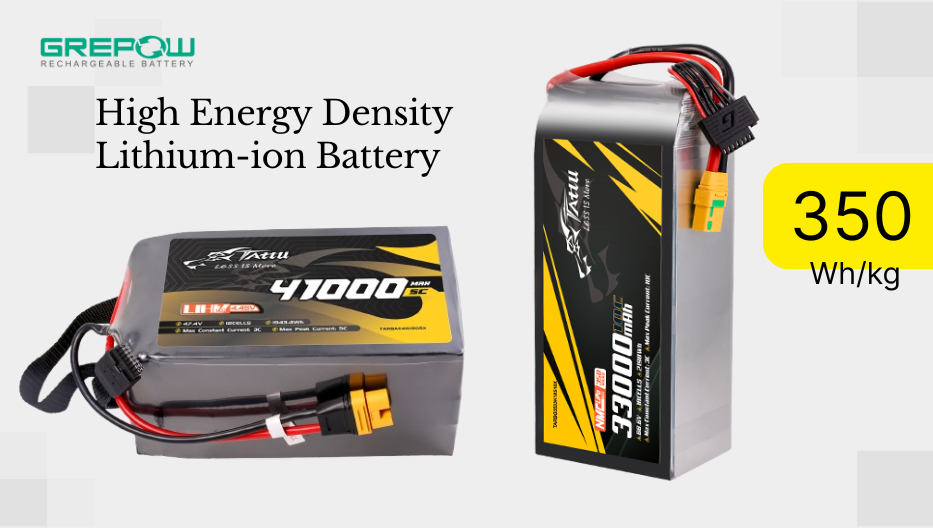
Four Specialized Lithium-Ion Battery Types Basis
2025-04-10
Related products
-
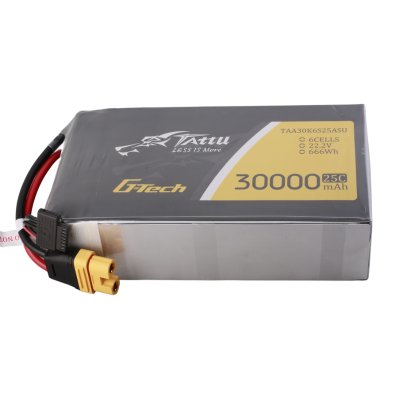
Tattu G-Tech 25C 6S 30Ah 22.2V Lipo Drone Battery
-
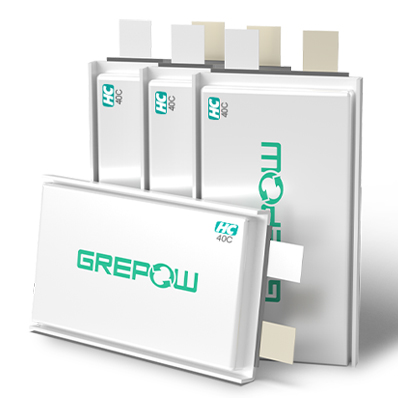
40C High Discharge Battery - High C Rate LiPo
-
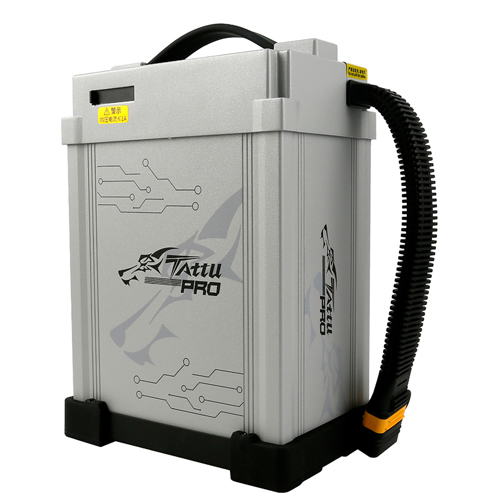
Tattu Pro 14S Lipo 22000mAh 51.8V Smart UAV Drone Battery Pack
-

Pouch Ultra Narrow Lipo Battery
-
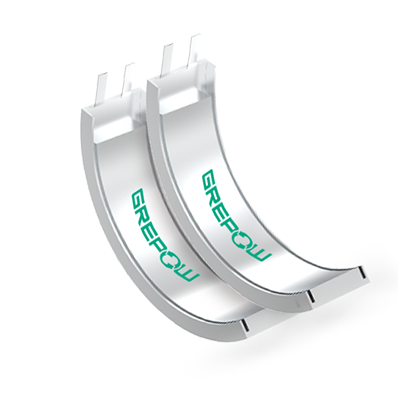
Pouch Curved Lipo Battery
-
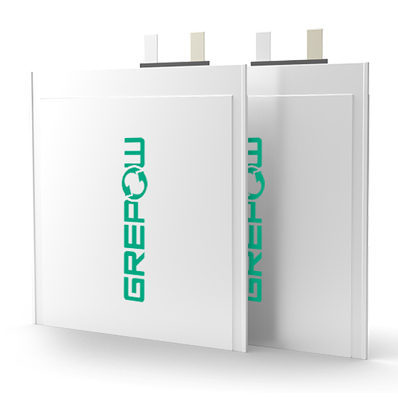
Pouch Ultra Thin Lipo Battery

